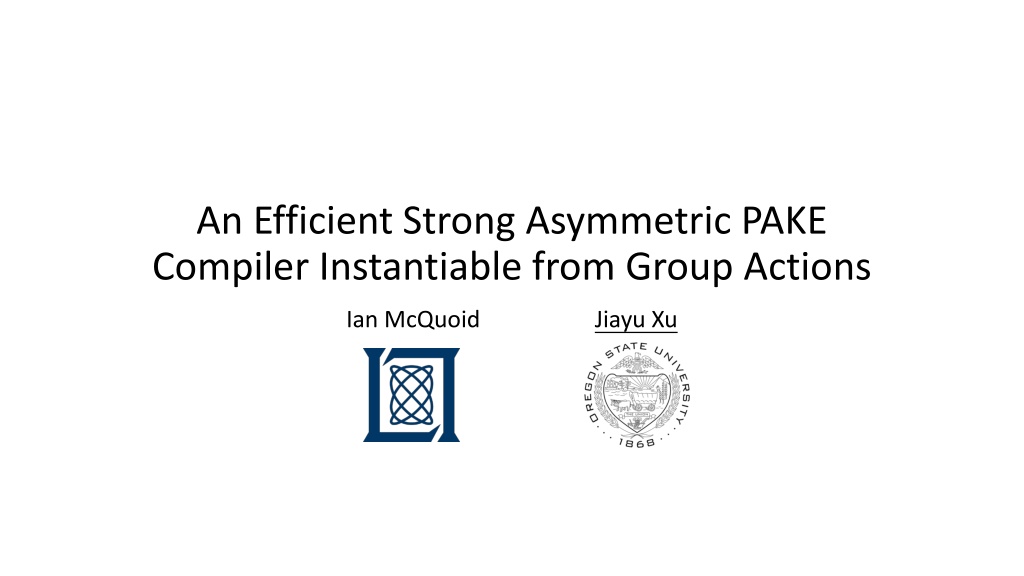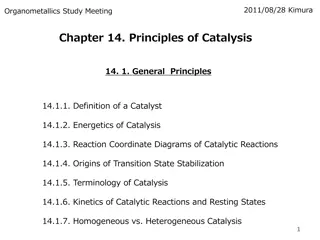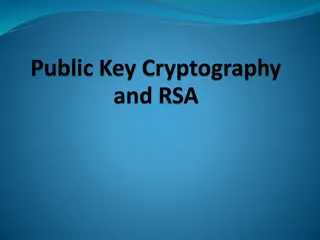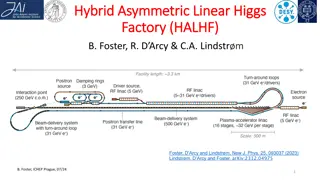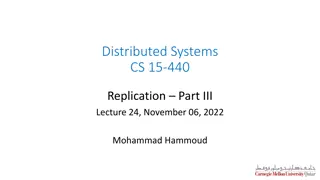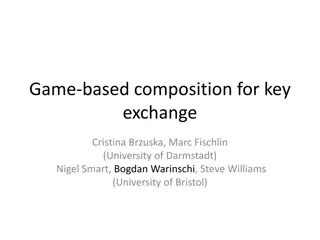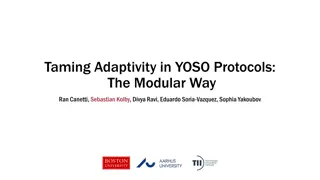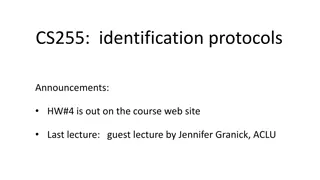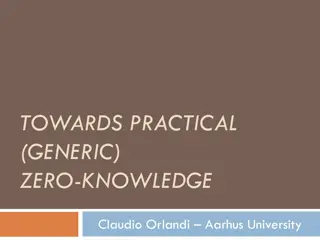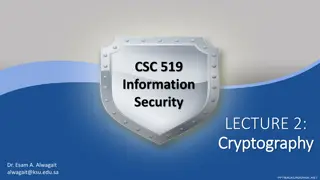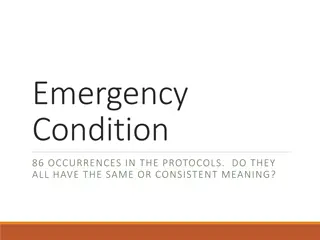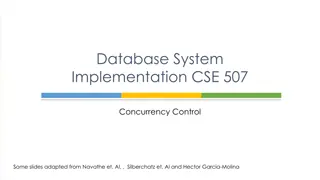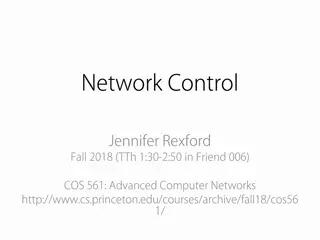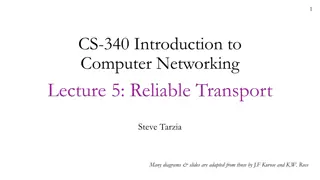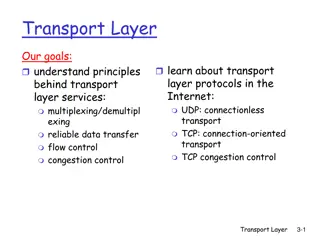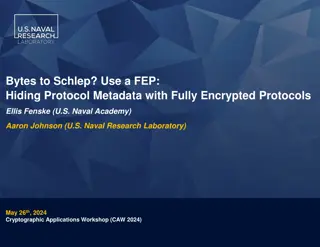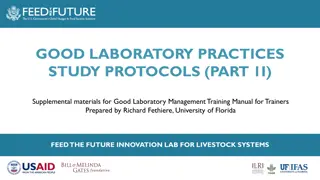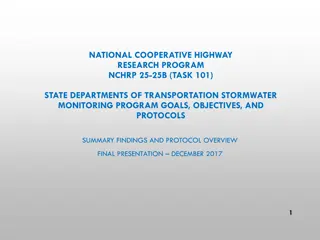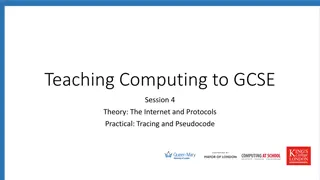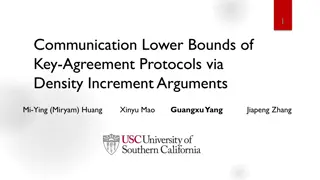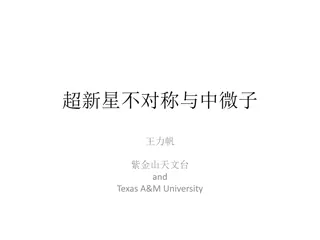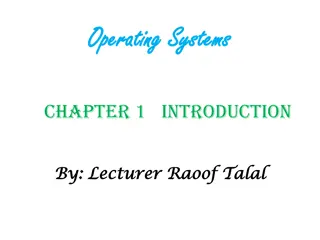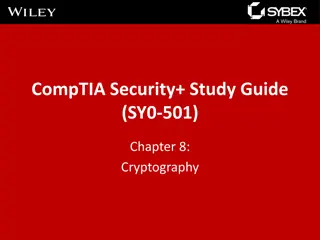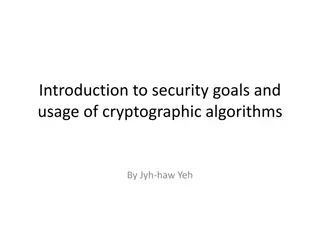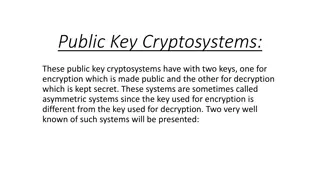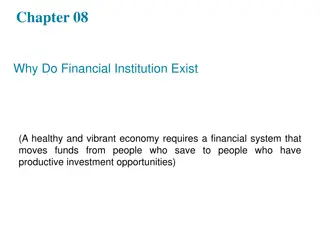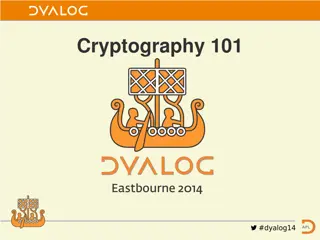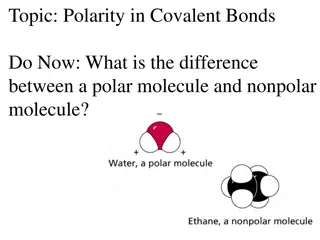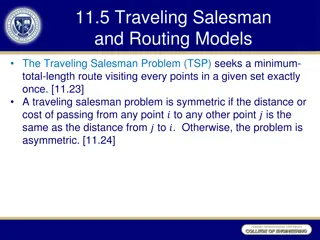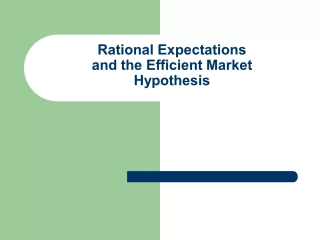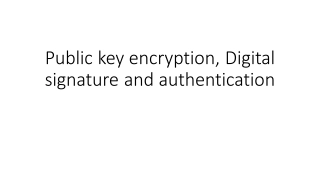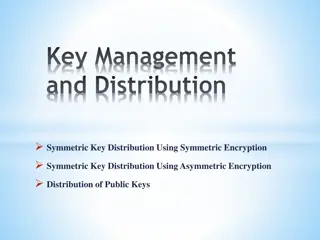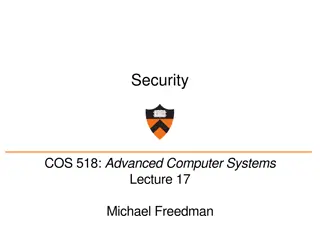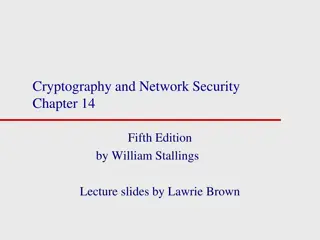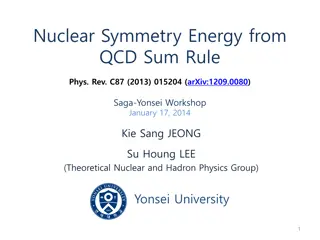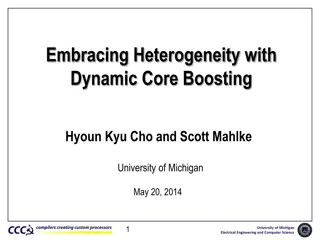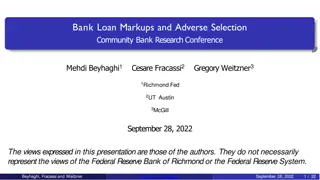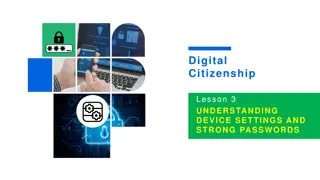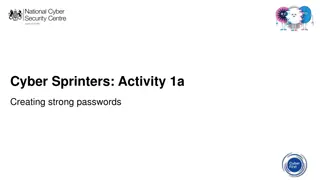Understanding Strong Asymmetric PAKE Protocols
Explore the intricacies of strong asymmetric PAKE (Password-Authenticated Key Exchange) protocols, including their security notions, possible attacks, and implementations. Learn about the challenges in constructing such protocols, the significance of universally composable security, and the limitations in a post-quantum setting.
Download Presentation

Please find below an Image/Link to download the presentation.
The content on the website is provided AS IS for your information and personal use only. It may not be sold, licensed, or shared on other websites without obtaining consent from the author. Download presentation by click this link. If you encounter any issues during the download, it is possible that the publisher has removed the file from their server.
E N D
Presentation Transcript
An Efficient Strong Asymmetric PAKE Compiler Instantiable from Group Actions Ian McQuoid Jiayu Xu
Password-Authenticated Key Exchange (PAKE) pw pw ?? ?? Password-only: no PKI Only online guessing attack possible (guess pw and impersonate one party) Unfit for client-server setting
Strong asymmetric PAKE (saPAKE) [JKX18] 3 possible attacks: 1. Online guessing attack 2. Offline dictionary attack after compromising server (get ?(pw), brute-force over dictionary to find pw) Asymmetric PAKE (aPAKE) if part of attack can be done before server compromise 3. Impersonating server after compromising server pw ?(pw) ?? ??
Security notions for (sa)PAKE game-based Universally Composable [CHK+05] PAKE [BPR00] aPAKE [BP13] [GMR06] saPAKE [JKX18] UC has become standard Support arbitrary composition Model password reuse across different accounts
Strong asymmetric PAKE (saPAKE) E: group exponentiation H: hash into group P: pairing operation Difficult to construct Only 5 saPAKE protocols to this date, all UC-secure client server round security assumption model [BJX19] 13E 8E 2 full 2-SDH, DDH ROM offline GGM OPAQUE [JKX18] 5E, 1H 4E 3 relaxed OMGDH ROM OPAQUE [JKX18] 2E, 1H aPAKE 1E 3 relaxed OMGDH ROM aPAKE CRISP [CNP+22] 6E, 3P, 3H PAKE 3E, 3P, 1H PAKE 3 full CDH ROM bilinear GGM AuCPace [HL19] 6E, 2H 5E, 1H 3 relaxed sSDH, OMGDH ROM All 5 have significant issues
OPAQUE, OPAQUE [JKX18], AuCPace [HL19] Only realizes a contrived relaxed UC functionality Very strong assumption (one-more gap Diffie-Hellman) [BJX19] Inefficient Offline security analysis sketchy ( adversary can test constant number of passwords per GGM operation ) CRISP [CNP+22] Uses bilinear map inefficient Uses GGM in a pairing group
saPAKE under post-quantum assumptions Even PAKE under post-quantum assumptions poorly studied No such saPAKE ever proposed
Our contributions 2 new saPAKE constructions (PAKE-to-saPAKE compilers) One based on DH-type assumptions One based on group-action assumptions (post-quantum) Realizes full UC saPAKE functionality Based on mild assumptions (CDH; GACDH) Precise offline security analysis ( adversary can test 2 passwords per GGM operation ) Efficient Conceptually simple Online security relies on the Algebraic Group Model (AGM)
E: group exponentiation H: hash into group P: pairing operation A: group action client server round security assumption model [BJX19] 13E 8E 2 full 2-SDH, DDH ROM offline GGM OPAQUE [JKX18] 5E, 1H 4E 3 relaxed OMGDH ROM OPAQUE [JKX18] 2E, 1H aPAKE 1E 3 relaxed OMGDH ROM aPAKE CRISP [CNP+22] 6E, 3P, 3H PAKE 3E, 3P, 1H PAKE 3 full CDH ROM bilinear GGM AuCPace [HL18] 6E, 2H 5E, 1H 3 relaxed sSDH, OMGDH ROM Our protocol 1 1E 2E 2 full CDH ROM PAKE PAKE offline GGM online AGM Our protocol 2 1A PAKE 2A PAKE 2 full GACDH ROM offline GGAM online AGAM
Our protocol (DH-based): first attempt = ?(pw) pw ? ? ? ? ?? ? (? )? ? low-entropy to eavesdropper who sees ?
= ?(pw) pw ? ? ? ? ?? ? (? )? PAKE ?? ?? Adversary can pre-compute (?,??(?)) for all possible passwords ? after server compromise, recover ? fast This is an aPAKE but not an saPAKE
= ? pw ? = ??(? ?) (?,? ) pw ? ? ? ?? ? (? )? PAKE ?? ?? After server compromise, adversary can effectively impersonate server by running server s algorithm on (?? ,(? )? ) Simulator cannot detect if DDH hard have to work in AGM
Offline security analysis Given (?,? ) where has low entropy (drawn from a random polynomial-size subset of ?), how long does it take to recover ? Discrete logarithm over sparse set Highly non-trivial, first studied in [Sch01] Can test 2 values per GGM operation [BJX19] uses a similar idea, but says can test ?(1) values per GGM operation
Summary 2 new saPAKE protocols DH-based: under CDH, in ROM+offline GGM+online AGM Group action-based: under GACDH, in ROM+offline GGAM+online AGAM Conceptually simple, more efficient than existing protocols
An Efficient Strong Asymmetric PAKE Compiler Instantiable from Group Actions THANK YOU! Ian McQuoid, Jiayu Xu https://eprint.iacr.org/2023/1434
